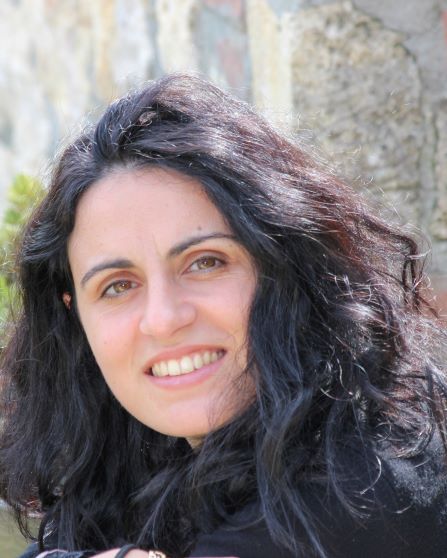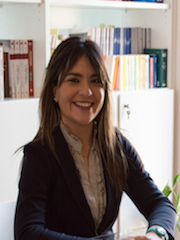Studying at the University of Verona
Here you can find information on the organisational aspects of the Programme, lecture timetables, learning activities and useful contact details for your time at the University, from enrolment to graduation.
Academic calendar
The academic calendar shows the deadlines and scheduled events that are relevant to students, teaching and technical-administrative staff of the University. Public holidays and University closures are also indicated. The academic year normally begins on 1 October each year and ends on 30 September of the following year.
Course calendar
The Academic Calendar sets out the degree programme lecture and exam timetables, as well as the relevant university closure dates..
| Period | From | To |
|---|---|---|
| primo semestre (lauree) | Sep 28, 2020 | Dec 23, 2020 |
| secondo semestre (lauree) | Feb 15, 2021 | Jun 1, 2021 |
| Session | From | To |
|---|---|---|
| sessione invernale | Jan 11, 2021 | Feb 12, 2021 |
| sessione estiva | Jun 7, 2021 | Jul 23, 2021 |
| sessione autunnale | Aug 23, 2021 | Sep 17, 2021 |
| Session | From | To |
|---|---|---|
| sessione autunnale (validità a.a. 2019/20) | Dec 9, 2020 | Dec 11, 2020 |
| sessione invernale (validità a.a. 2019/20) | Apr 7, 2021 | Apr 9, 2021 |
| sessione estiva (validità a.a. 2020/21) | Sep 6, 2021 | Sep 8, 2021 |
| Period | From | To |
|---|---|---|
| Vacanze di Natale | Dec 24, 2020 | Jan 6, 2021 |
| Vacanze di Pasqua | Apr 3, 2021 | Apr 6, 2021 |
| Vacanze estive | Aug 9, 2021 | Aug 15, 2021 |
Exam calendar
Exam dates and rounds are managed by the relevant Economics Teaching and Student Services Unit.
To view all the exam sessions available, please use the Exam dashboard on ESSE3.
If you forgot your login details or have problems logging in, please contact the relevant IT HelpDesk, or check the login details recovery web page.
Should you have any doubts or questions, please check the Enrollment FAQs
Academic staff
 federico.innocenti@univr.it
federico.innocenti@univr.it
 francesca.rossignoli@univr.it
francesca.rossignoli@univr.it
 0444 393941 (Ufficio Vicenza) 0458028261 (Ufficio Verona)
0444 393941 (Ufficio Vicenza) 0458028261 (Ufficio Verona)
 massimo.tezza@univr.it
massimo.tezza@univr.it
 andrea.xamo@univr.it
andrea.xamo@univr.it
Study Plan
The Study Plan includes all modules, teaching and learning activities that each student will need to undertake during their time at the University.
Please select your Study Plan based on your enrollment year.
1° Year
| Modules | Credits | TAF | SSD |
|---|
2° Year activated in the A.Y. 2021/2022
| Modules | Credits | TAF | SSD |
|---|
1 module among the following3° Year activated in the A.Y. 2022/2023
| Modules | Credits | TAF | SSD |
|---|
2 modules among the following| Modules | Credits | TAF | SSD |
|---|
| Modules | Credits | TAF | SSD |
|---|
1 module among the following| Modules | Credits | TAF | SSD |
|---|
2 modules among the following| Modules | Credits | TAF | SSD |
|---|
Legend | Type of training activity (TTA)
TAF (Type of Educational Activity) All courses and activities are classified into different types of educational activities, indicated by a letter.
Type D and Type F activities
| years | Modules | TAF | Teacher |
|---|---|---|---|
| 1° | Future matters | D |
Alessandro Bucciol
(Coordinator)
|
| 1° | Future matters | D |
Alessandro Bucciol
(Coordinator)
|
| years | Modules | TAF | Teacher |
|---|---|---|---|
| 1° | Design and Evaluation of Economic and Social Policies | D |
Federico Perali
(Coordinator)
|
| 1° | Public debate and scientific writing - 2020/2021 | D |
Martina Menon
(Coordinator)
|
| 1° | Soft skills coaching days Vicenza (terza edizione) - 2020/2021 | D |
Paola Signori
(Coordinator)
|
| 1° | Wake up Italia - 2020/2021 | D |
Sergio Noto
(Coordinator)
|
Cost Analysis and Management (2022/2023)
Teaching code
4S008941
Academic staff
Coordinator
Credits
6
Language
Italian
Scientific Disciplinary Sector (SSD)
SECS-P/07 - BUSINESS ADMINISTRATION AND ACCOUNTING STUDIES
Period
Secondo semestre (lauree) dal Feb 20, 2023 al May 31, 2023.
Learning objectives
The course supplies the conceptual and methodological basis of cost analysis and management, by developing knowledge and skills to apply them in real business contexts. It aims to teach the students the purpose and functioning of the main cost accounting tools and the calculation of different margins and economic results. At the end of the course, students should be able to design a cost accounting system, to calculate the cost of a product or of other cost objects, with traditional methods and with Activity Based Costing, and in different production contexts; to calculate standard costs and variances on actual costs, to use cost information and margins for management decisions.
Prerequisites and basic notions
knowledge of concepts of cost, revenue, margin, result.
knowledge of cost categories (nature classification) and the Profit & Loss structure
Program
1. Management control and cost measurement systems
2. Measuring the full cost of the product
3. Activity Based Costing
4. Product costs in order productions and in continuous flow processes
5. Cost measurement systems based on estimates values
7. Measurement systems based on direct variable costs and operative risk conditions
8. Economic information supporting short-term decision making
Bibliography
Didactic methods
The course consists in frontal lessons dedicated to theoretical basis of management control and exercises on management control tools (cost accounting, cost of products, what if analysis, budgeting…).
The course will include some meetings with controllers or CFO illustrating the practical implementation of cost control in their firms.
Learning assessment procedures
The final exam is a written test, composed of both exercises and theoretical questions, and is aimed at checking the knowledge of the topics in the course program and the ability to apply the cost control tools to the different cases included in the exercises.
There are no mid-term exams during the course; the exam will be the same for both attending and non-attending students.
Evaluation criteria
theoretical knowledge of the topics.
ability to solve numerical questions relative to the different control tools studied.
Criteria for the composition of the final grade
Sum of the points achieved in the excercises and theoretical questions.
Exam language
italiano
Career prospects
Module/Programme news
News for students
There you will find information, resources and services useful during your time at the University (Student’s exam record, your study plan on ESSE3, Distance Learning courses, university email account, office forms, administrative procedures, etc.). You can log into MyUnivr with your GIA login details: only in this way will you be able to receive notification of all the notices from your teachers and your secretariat via email and also via the Univr app.
Graduation
Student mentoring
Gestione carriere
Linguistic training CLA
Student login and resources
Modalità di erogazione della didattica
Le lezioni di tutti gli insegnamenti del corso di studio, così come le relative prove d’esame, si svolgono in presenza.
Peraltro, come ulteriore servizio agli studenti, è altresì previsto che tali lezioni siano videoregistrate e che le videoregistrazioni vengano messe a disposizione sui relativi spazi e-learning degli insegnamenti, salvo diversa comunicazione del singolo docente.






























